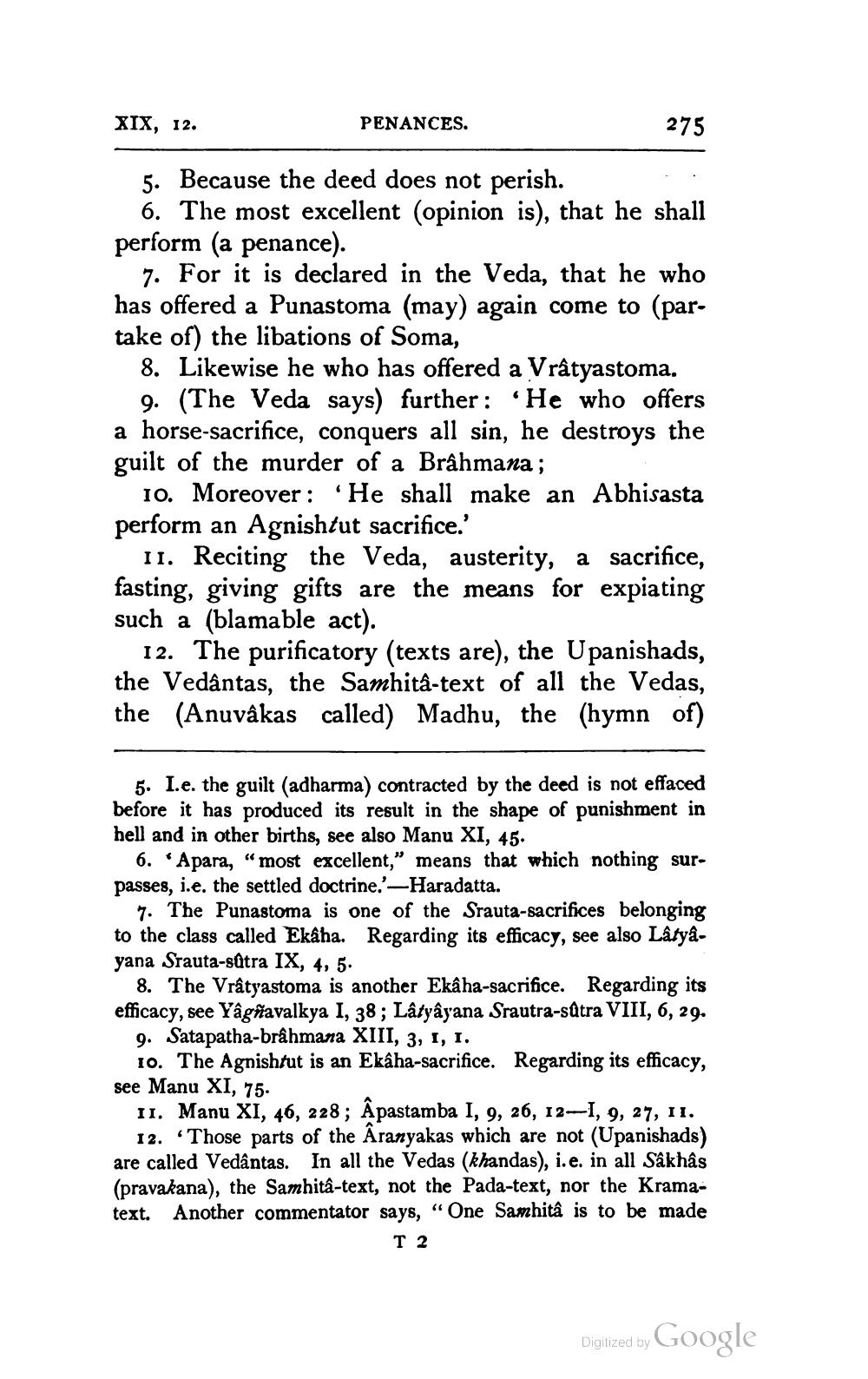________________
XIX, 12.
PENANCES.
275
5. Because the deed does not perish.
6. The most excellent (opinion is), that he shall perform (a penance).
7. For it is declared in the Veda, that he who has offered a Punastoma (may) again come to (partake of) the libations of Soma,
8. Likewise he who has offered a Vrâtyastoma. 9. (The Veda says) further: 'He who offers a horse-sacrifice, conquers all sin, he destroys the guilt of the murder of a Brâhmana;
10. Moreover: 'He shall make an Abhisasta perform an Agnishtut sacrifice.'
II. Reciting the Veda, austerity, a sacrifice, fasting, giving gifts are the means for expiating such a (blamable act).
12. The purificatory (texts are), the Upanishads, the Vedantas, the Samhitâ-text of all the Vedas, the (Anuvâkas called) Madhu, the (hymn of)
5. I.e. the guilt (adharma) contracted by the deed is not effaced before it has produced its result in the shape of punishment in hell and in other births, see also Manu XI, 45.
6. Apara, "most excellent," means that which nothing surpasses, i.e. the settled doctrine.'-Haradatta.
7. The Punastoma is one of the Srauta-sacrifices belonging to the class called Ekâha. Regarding its efficacy, see also Lâtyâyana Srauta-sutra IX, 4, 5.
8. The Vrâtyastoma is another Ekâha-sacrifice. Regarding its efficacy, see Yâgnavalkya I, 38; Lâtyâyana Srautra-sûtra VIII, 6, 29. 9. Satapatha-brâhmana XIII, 3, I, I.
10. The Agnishtut is an Ekâha-sacrifice. Regarding its efficacy, see Manu XI, 75.
11. Manu XI, 46, 228; Âpastamba I, 9, 26, 12—I, 9, 27, 11.
12. Those parts of the Aranyakas which are not (Upanishads) are called Vedantas. In all the Vedas (khandas), i. e. in all Sâkhâs (pravakana), the Samhitâ-text, not the Pada-text, nor the Kramatext. Another commentator says, "One Samhitâ is to be made
T 2
Digitized by
Google




